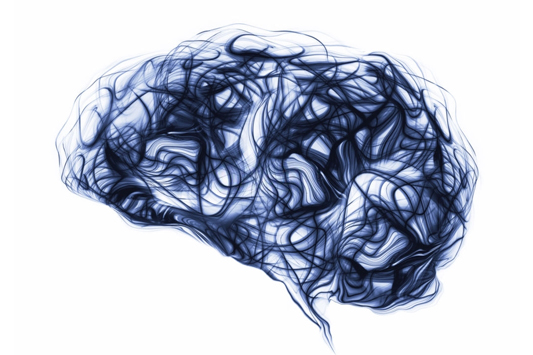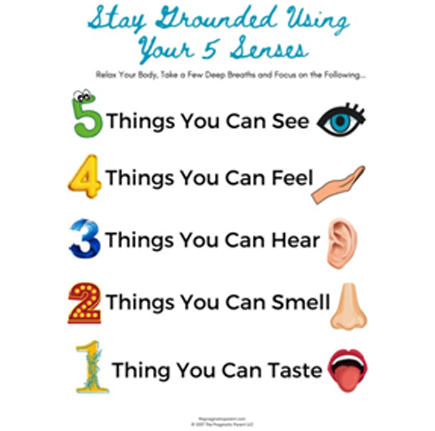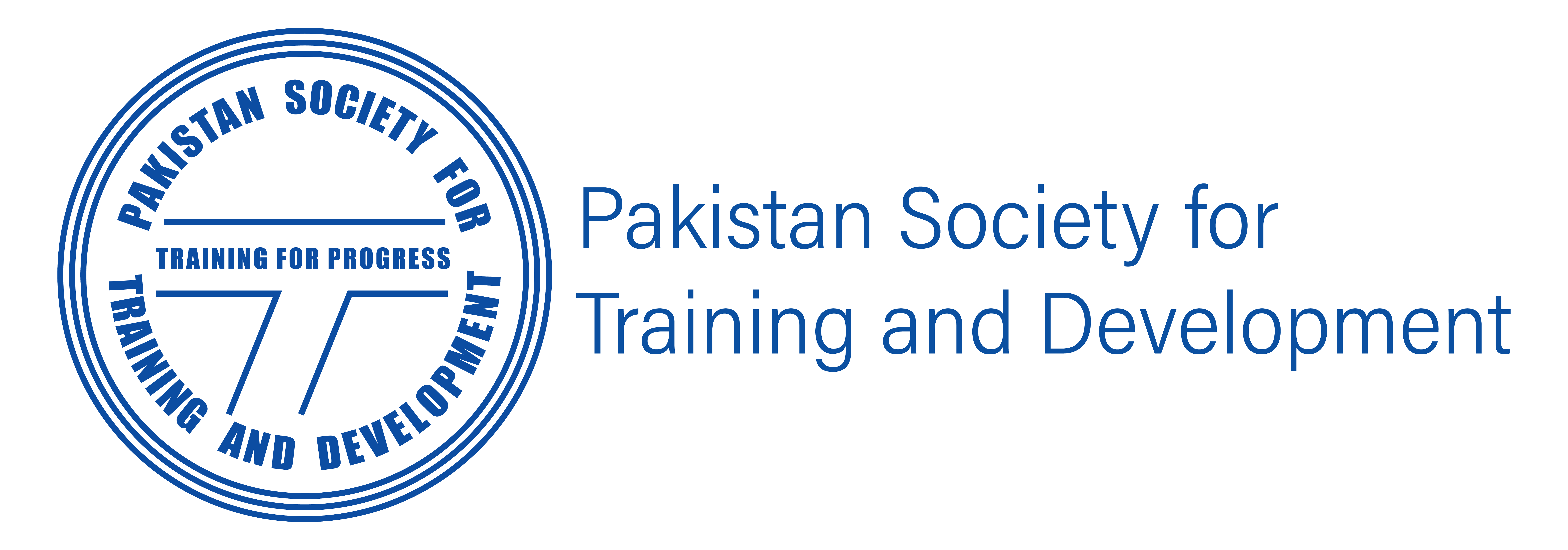Things you need to know about anxiety

by admin
Living with anxiety can be exhausting, frustrating, and painful. This is the most common, natural and complex emotion we feel when we are in psychological distress. My experience with this emotion was the same; however, it also helped me to progress in my life. One thing I did differently from other people who experience anxiety that I started understanding and listening to the voice of anxiety. What my anxiety is trying to tell me? It is referring to which of my fear? What aspects of life do I need to fix to minimize or reduce the level of anxiety? As a person what discomfort in life I amexperiencing?
To manage your anxiety the first step is to understand this emotion.
So, what is anxiety?
We call anxiety in Urdu as a condition of Iztarab, Baychaini orGhabrahat.
Anxiety is the mind and body’s natural response to stress, fears, uncertainty, unfamiliar situation or uncertainty. When you feel anxiety you also experience uneasiness or distress feelings.Experience of anxiety is different for everyone because personalities, life experiences, thought process, belief systems, culture and physiology of people are different. However, the common expression of anxiety is expressed as an unsettling feeling.
Anxiety has emotional experiences and physical sensation. In an emotional experience, you might feel sad, down, low, distracted, defocused. When you feel physical sensations you might sweat, experience headache, pounding of heart, and/or fatigue etc.
Anxiety also acts as a secondary emotion because one experienced it in the place of another emotion that is difficult for the person to feel or express. Anxiety can be a cover of hurt, jealousy, disappointment, embarrassment, sadness or fear.
Anxiety is a mixture of different emotions and thoughts like fear, anger, sadness etc. and these feelings are caused by our thought process. I express my feeling of anxiety as a tangled colorful thread which has other emotions as well. It represents that I am feeling anxious as a cause of other emotions. When I try to untangle this thread, it has other emotions like confusion, anger, etc. which are the cause of my thought process or fears which are developed by my lifeexperiences.
Anxiety is also an expression of other emotions. You experience the intensity of other emotions like fear, anger, frustration, confusion, insecurity, sadness through anxiety in your body. So anxiety feeling is usually generated by other emotions which are evoked or filled with the thoughts, memories, images that have become subconsciously linked with those particular emotions. When these emotions and thoughts are tangled you will feel anxious.
It is a cause of the problematic or unsettling situation. If you are facing a challenging or distressful situation in your life than dealing that situation can cause you anxiety. Problematic situationsmostly
bring a lot of stress, mental and physical fatigue, confusion, helplessness, the feeling of being stuck and combination of these feelings can blur your thoughts, can make your mind clouded. Feeling anxious in this situation is very common because anxiety usually drives your attention towards that bigger problem which might be a threat to your life, mental and emotional security.
In which situations we feel anxious?
There are various situations when we feel anxiety and reasons can be different for person to person. I am highlighting a few situations and putting these situations in 4categories.
You feel anxious when you experience fear, danger, threat: Fear of uncertainty, financial insecurity, unknown, failing in life or exams, being alone, height, flying, a threat to justify, fear of losing family member and friends, fear of losing support, fear of public speaking, fear of losing a job, etc.
General life situations can trigger anxiety: Unstructured life and work, too much of work in life, unable to get time for self, missing deadlines, unable to give proper attention to family or home, if a person is experiencing grief, or loss, a trauma in life, accidents, change in living arrangements, pregnancy or giving birth.
Critical about own self can make you feel anxious: If a person has low self-esteem, self-confidence, low self-worth, if they think I am not good enough or people have made them believe they are not good enough. Not confident about their appearance, personality or maturity, if emotional needs are not fulfilled, if feels rejected, abandoned, cheated, hopelessness.
Living in the unhealthy or critical environment can evoke your anxiety: Continuous critic on your work, continuous sense of judgement, directly or indirectly critic on your personality, passing judgement on your lifestyle, beliefs and norms, if you feel you are not accepted in a certain environment, receiving instructions that you have to behave or act in a certain way, as a person your beliefs about yourself are rejectedetc.
General perception of anxiety or experience of anxiety is that it is a bad feeling, unsettling feeling, alarming feeling, related to emotional and physical pain. This perception is developed because anxiety emotional and body experience is intense. It aches, you experience pounding heart, breathing problem, upset stomach, extreme emotional and body fatigue, increase and decrease in blood pressure, muscle aches, effects on the immune system, insomnia, defocus, cannot think straight, blur thought etc.
However, there are positive sides of anxiety which most people are not aware of
Anxiety act as your defense mechanism
If you sit with this feeling of anxiety it always tells you something to change or protect you from the dangerous situation or a life threat. Anxiety is an adaptation of a fear response. I have observed that the response of anxious people ismore immediate and quicker than people who don’t experience anxiety generally in life.
This is your defense mechanism which alerts and protects you from dangerous situations or potential threats. It allows you to make conscious decisions about the presence of danger and how to protect yourself.
Anxiety directs your attention towards problems
Anxiety is a very strong emotion and has an intense impact on your body, psychological and emotional wellbeing. That is why sometimes you feel that it is difficult for you to focus. Your mind and body are likely trying to divert your focus on a situation which needs to be addressed immediately. It may also give you a realization of what you truly want in your life and helps you to respond to that realization or take action on it. Anxiety can direct you to see that situation is too important to ignore. It behaves like a stubborn child, if you don’t listen to its voice it will keep on coming, making you feel distressed, uncomfortable, unsettled until you do something about the situation or a problem. It will keep on deriving your attention towards the unsettling things you are experiencing in your life.
I also believe that anxiety has a strong connection with growth because it always asks you to change and move ahead in your life. So, it acts as a catalyst in your growth process. Because of anxiety, you grow in your life it keeps asking you to remove obstacles, challenges, problems and negativity in your life and moveforward.
Anxiety connects you with your core values developed by you
It acts as a radar to show us what is right and wrong for us. To fully eliminate anxiety would be to eliminating perspicacity and self-awareness. We feel anxious when someone is criticizing us, talking against our belief/ value system, discriminating us, bullying us etc. It helps you to connect with your real self and original belief system which is not influenced by the external environment. So when something goes against your value or belief system, it is the anxiety which encourages you to say NO to the situation or behavior.
I will highly recommend contacting experts when you are experiencing a high level of anxiety. However, there are few self-help techniques which I usually suggest to my clients, when they don’t have psychological support. These are short-term techniques which help you lower your anxiety level for the moment.
Grounding Technique: This practice helps in minimizing anxiety, brings you in the present moment and stops anxious thoughts.

Stay connected with your feelings and experience by writing journal.
Writing a journal about your experience and feelings helps you to:
- Develop greater awareness of self
- Resolve troubling thoughts because you develop a better understanding by expressing it to yourself and writing is a great way of expressing self
- You feel light because whatever you experience, think and feel, it comes out of your system and you don’t have to carry the burden of those thoughts any more. It will also help you to Understand and Accept your situation and you will be able to find the solution to your problems
How to write a journal?
Step 1: you can use a diary, laptop, computer or mobile but make sure that devices are password protected or keep your diary in a place where only you can access. This will help you to maintain your privacy.
Step 2: Try to make sense of your situation by writing your experience; the situation you are in, kind of people you are interacting with, their influence and interaction in your life. What you are experiencing? What is happening around you which is affecting you?
Step 3: Your thought process: Write what are you thinking and what is making you think that way? Are these thoughts impacting you positively or negatively? If destruction is happening in your personality then what are the reasons? You have to see the positive and negative side of your thoughts because it will help you to adopt a solution-orientedapproach.
Step 4: Try to get connected with your feelings and emotions. Have a journey of your emotional experience. Write what feelings am I experiencing? Which is the most prominent one? When did I become aware of these feelings? What might be triggering these feelings?
Step 5: Try to find out what you can do to change your situation? And at the end of this exercise, do check how you are feeling, what is your state of mind after writing the journal, is there any clarity in your thought process.
Shocking and breaking your thought patterns with positive thoughts- Exercise to manage your thoughts
If you are experiencing yourself thinking about negative aspects of life, or there is a thought which is troubling and making you feel anxious then this exercise will help you to manage your negative thoughts. It will replace your negative thoughts with positive thoughts. It will also help you to train your brain to think and focus on the positive side of life.
If you are driving, what do you do when there is a pit which you are not able to see from far or suddenly there is a car infront of your car without giving you an indicator? You will overtake it. Exactly in the same way you need to overtake your distressful thoughts. Let the negative or troubling thoughts come and keep on thinking for atleast a minute. Try to understand it, listen to the voice of this thought, what it is saying, listen to your thought empathically without any judgement or guilt. After a minute imagine there is a green board and ‘Shift’ or ‘Change’ word is written on it. Now change the nature of your thought and start thinking something very positive, a thought which makes you extremely happy. This thought can be related to your travel plan, your new job, relationship, kids etc. Now try to imagine yourself in that positive or happy situation. What are you doing? What is happening around the environment, how are you feeling? What you have achieved. Imagine yourself fully in the situation as you are living that happy experience in the present moment. At the end of the exercise try to connect with your emotions in the present moment. What are your feelings after doing this exercise?
Reframe:
People often suggest maintaining a positive attitude but how and what to do is very important. In my opinion,a positive attitude means seeing life and challenges as an opportunity to grow. Develop a positive perspective of your challenges but keeping in mind the difficulty of your situation and acknowledge that difficulty.
- Try to develop a different or positive perspective of the same situation is necessary to have a solution-oriented approach. You have to see the glass half full with water and half-empty as well because if you will not see half-empty glass you will not be able to fill the glass and if you will not see the half-full glass you will not be able to enjoy the fullness and refreshing nature of the water. Take help or try to see the other aspect of the situation.
- I will also suggest writing all the details of your challenges and problems and what is making you feel stuck in the problems like lost the job, financial insecurity, fear of uncertainty etc.
- Make a list of all your resources that can be your skills, knowledge, exposure, experience, support, people, money; any emotional or physical resources
- Now try to find out the solution by using these resources or blessings. Try to filter and connect that which resource can help me solve my problems
- Organize it by writing it in columns. So, you can make a column of details of the problems, resources you have and how to use those resources to find out solutions.

Sumra Anis
Psychotherapist and Organizational Development Consultant
Sumra is a Pakistan based consultant. She completed her second Master’s degree in counselling and Psychotherapy from the UK. She also holds Master degree in Human resource. For last 10 years, she has been associated with learning and development and organizational development field. She has also worked as a freelance consultant with British Council, Friedrich Nauman Stiftung and Nestle. She is also a mental health practitioner.
Recommended Posts

Self-Awareness – Metacognition: Fundamental Basis Of Emotional Intelligence & How To Cultivate It
December 8, 2020

Stories Prepare You to Act
October 29, 2020

Believe the Unthinkable Is Possible: A Q&A With Ben Nemtin
October 29, 2020

